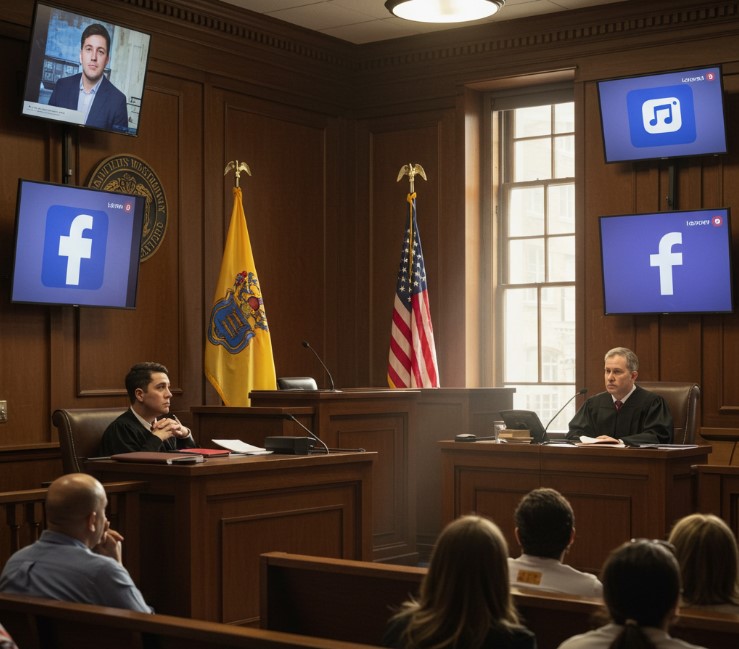Published in New Jersey Municipalities, November, 2013
Every night, when we have a public meeting, we think about how best to conduct it. It is not possible to manage every aspect of a meeting. Some people feel that any attempt to manage a meeting undermines public participation. After all, public participation is the reason why we hold public meetings in the first place.
With that said, even when a meeting is well run, unforeseen conflicts of interest arise.
The best defense to conflicts of interest is training. However, every conflict can be easily managed if recognized quickly, and if the official in question promptly recuses themselves and abandons the dais while any discussion occurs.
Failure to recuse yourself can have serious consequences and undermines the public’s confidence in government. More than once in my career I have had great local officials tell me that notwithstanding their conflict of interest, they can act honestly and without bias. Notwithstanding, their good intentions and sincerity, the law is clear: if you have a conflict of interest you must recuse yourself.
Your attorney is responsible for helping you make ethical determinations. Remember, your attorney feels pressure as your employee to please you. They recognize that making a ruling that an official cannot sit can have all kinds of repercussions.
So, consider how hard it must be to give that advice. You should also reflect on the fact that your attorney has an obligation to your community, not just you.
Telling your attorney that they must find a way around ethical issues is always a bad idea. The correct move is to gracefully accept their advice, recuse yourself, cease any comments and discontinue any involvement in the matter.
Stuart Koenig, the current recipient of the Michael A. Pane Award for Ethics, served a myriad of communities as town counsel. He was known for giving advice, regardless of the consequences.
In a recent, unpublished case, an ordinance was set aside because a Law Division Judge found that a councilperson had what the Judge termed an appearance of a conflict of interest and chose to participate in a hearing anyway. The councilperson was a realtor and did business in a section of town where the proposed ordinance would impact parking; as such, the councilperson’s business might have benefited from the proposed enactment. The Judge stated that the councilperson “acknowledged that it was, at the very least, a possibility that he would profit from the ordinance because, in his opinion it improves the quality of life for residents, rendering these properties more desirable and easier to rent.” While the Court did not doubt the sincere belief of the councilperson that he was not conflicted, the Court went on to say: “A perceived conflict of interest is as harmful to the public’s confidence in its representatives as the actual existence of such conflict.”
The Court went on to say, “Even assuming the result of the ordinance was beneficial and can be viewed as having improved the quality of life for residents in the Borough, as defendant contends; it is the mere existence of a conflict, and not its actual effect, that requires the official action to be invalidated. Actual proof of dishonesty need not be shown.”[i] In the end, this councilperson, with years of experience, resigned his position. This matter remains on appeal, and it will be interesting to see if the Appellate Division agrees.
This case illustrates that a reviewing Court will have low tolerance for officials who act on a matter: 1.) when they have an actual conflict of interest, 2.) when they have a perceived conflict of interest and 3.) perhaps even when an opponent suggests a conflict of interest exists, unless it is properly addressed.
It seems to me that urgency is what undoes us. The best move here would have been to postpone the action and perhaps seek an independent legal opinion on whether the councilperson had a conflict of interest.
ATTORNEYS
Elected and appointed officials are not the only ones who could have a conflict; sometimes it’s the attorney.
Recently, a city attorney realized that he had a conflict and asked that special counsel be appointed. Special counsel was appointed; but based upon based upon the exigencies of the moment, the City Attorney rendered some assistance to the governing body. According to the Supreme Court:
The challenged acts are: sending the initial letter to counsel involved in this appeal; preparing a generic memorandum that his substitute counsel forwarded, along with his own, to the governing body; and appearing at the May 5 meeting, in his capacity as Corporation Counsel, during which he answered questions about voting procedures and then signed the resolution on the line designating him as having approved the City Council’s action.[ii]
It is obvious from a review of these tasks that they were very limited tasks, but they were enough for our Supreme Court to find the governing body’s actions tainted and set them aside. Again, the City Attorney’s sincerity and good intentions were never in question. The Supreme Court explained that as the City was reviewing a land use matter, which is a quasi-judicial proceeding; that, just like a judge, any appearance of an impropriety must be avoided.
The big lesson here is haste makes waste. When we rush, we make mistakes. In this instance, hindsight tells us the City Attorney should have told the governing body to hold this matter until the conflict attorney could be made available.
The bottom line is when your attorney raises concerns regarding ethics, cooperate to the fullest extent. Pushing them for an opinion or assistance, when you know they have a conflict, is unwise.
Remember, even if your motives are good and your actions sincere, a court will set aside municipal actions even when just an appearance of a conflict exists, in order to ensure the public’s confidence in their local officials.
[i] See Speroni v. Boro of Point Pleasant Beach, etc., et al, Docket No. OCN-L-3135-12 and Purple Jet Fishing Charters, etc. et als v. Boro of Point Pleasant Beach, et al., Docket No. OCN-L-1719-12. A copy of Judge Grasso’s Opinion can be found on the Bulletin Board tab of Dennis Galvin’s website bio.
[ii] Kane Properties, LLC v. City of Hoboken, A-96 SEPTTERM 2011, 2013 WL 3197164 (N.J. June 26, 2013)












